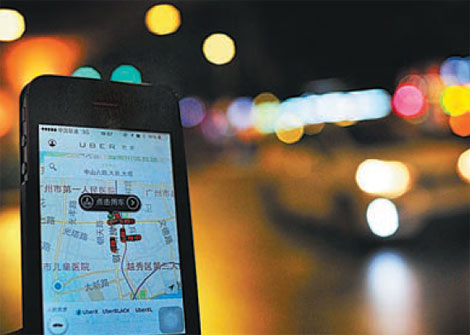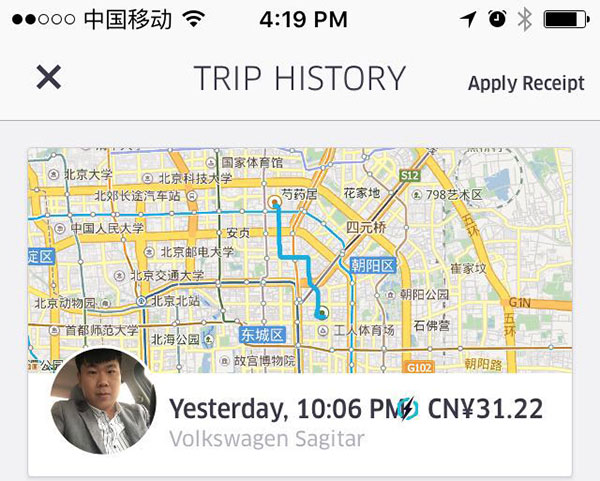
In the acclaimed BBC series Sherlock, a cabbie turns out to be the serial killer in the first episode, the person you least suspect because he's "just the back of a head" to his passenger.
However, when I take a ride on Uber or Didi on my trips around Beijing, I often try to make an effort to have a conversation with the driver - to get some sense of the people that literally drive the two car-hailing juggernauts.
Of course, I try to push the "possible serial killer" thought to the back of my mind, and usually that's pretty easy, since I've rarely had any bad experiences with my drivers.

The typical Uber or Didi driver in Beijing is a middle-aged Chinese man with short-cropped, un-trendy hair, and usually grew up somewhere other than Beijing. Most of them have been here an average of ten years.
They usually drive a Volkswagen or a Buick or a Toyota, although on one glorious ride I was picked up in a Tesla that moved impossibly silently down Beijing's ring roads, while I questioned its shrunken-faced driver about how he recharged his vehicle (there are stations where you can do so).
What interested me about these men, who seem to be pretty well off - they have at least enough to afford a car - was a strain of nostalgia for their hometowns that ran through their conversations, despite the fact that they were clearly financially better off today.
This was theme that kept cropping up, no matter where they were from - Henan, Shanxi, Shandong. I traced the familiar, expected pattern of rural-urban migration from a farming village to the big smoke, the metropolis, the capital, and the attendant losses that came along with it.
"When I was young, Spring Festival was so exciting. It was the best time of the whole year," said Liang, from Hebei. "It was the only time in the year we got new clothes. Now we can buy new clothes any time, we can eat whatever we like anytime. The new year has become almost meaningless," he said.
Curiously, inherent in his statement was an acknowledgement that life had gotten better - he could buy those new clothes, those special new year foods year round, now, whereas they were rare in his childhood. Yet, it was the very poverty he had escaped that made those things special. They gave him a feeling that mass consumerism cannot now provide.


















































